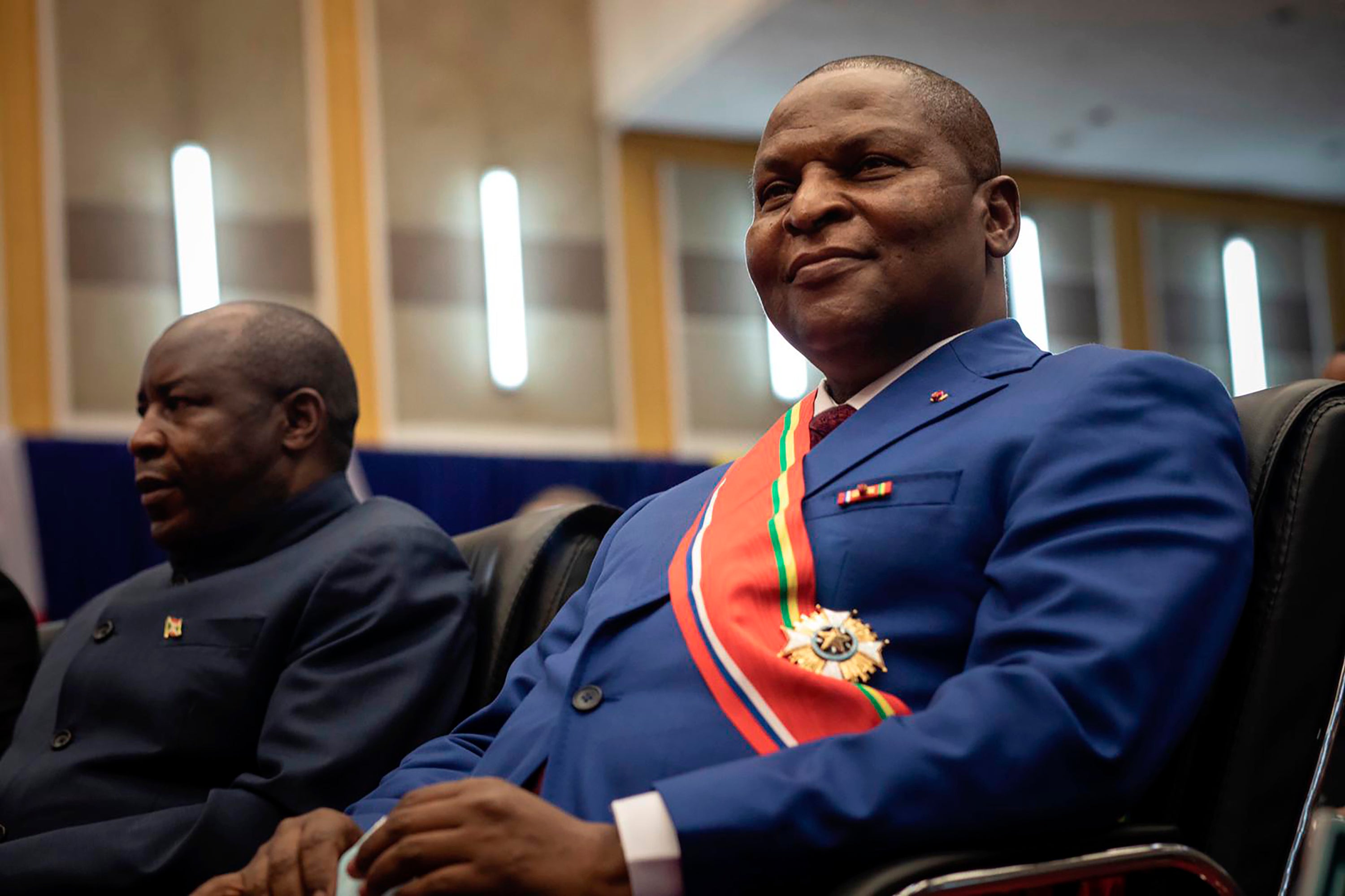Embattled Central African Republic president begins 2nd term
President Faustin Archange Touadera has been sworn in for a second term in Central African Republic as his government faces a growing threat from armed rebels

Your support helps us to tell the story
From reproductive rights to climate change to Big Tech, The Independent is on the ground when the story is developing. Whether it's investigating the financials of Elon Musk's pro-Trump PAC or producing our latest documentary, 'The A Word', which shines a light on the American women fighting for reproductive rights, we know how important it is to parse out the facts from the messaging.
At such a critical moment in US history, we need reporters on the ground. Your donation allows us to keep sending journalists to speak to both sides of the story.
The Independent is trusted by Americans across the entire political spectrum. And unlike many other quality news outlets, we choose not to lock Americans out of our reporting and analysis with paywalls. We believe quality journalism should be available to everyone, paid for by those who can afford it.
Your support makes all the difference.President Faustin Archange Touadera was sworn in for a second term Tuesday in Central African Republic as he faces a growing threat from an armed rebellion linked to the country's former strongman Francois Bozize.
Touadera, who won the December election with about 53% of the vote, vowed “zero impunity for the perpetrators of crimes” during his second term.
“We risk falling into the traps of the past — and the peace, dignity and prosperity we seek will not be found,” he said at Tuesday's ceremony.
Critics, though, questioned whether Touadera would be able to accomplish that given his failure to do so over the last five years in power.
“We believe that this is a declaration of intent and wishful thinking that will not be followed up,” said Justin Plisson, an activist with the MLPC opposition party.
U.N. Secretary-General Antonio Guterres said earlier this year that Central African Republic is now at “a critical juncture."
The mineral-rich country has faced deadly intercommunal fighting since 2013, when predominantly Muslim Seleka rebels seized power and forced Bozize from office.
Mostly Christian anti-Balaka militias later fought back, also targeting civilians in the streets. Untold thousands were killed, and most of the capital's Muslims fled the capital in fear of their lives.
The country saw a period of relative peace in late 2015 and 2016, but violence then intensified once again. A peace deal between the government and 14 rebel groups aimed at ending years of fighting was signed in February 2019.
But violence blamed on CAR’s former president, Bozize, and his allies has thrown the agreement into doubt. The latest clashes erupted after the constitutional court rejected Bozize’s candidacy to run for president in December.
In January, rebels tried to seize the capital but were repelled by security forces after intense fighting on the city’s outskirts.